Postpartum Vs. Baby Blues
The journey into motherhood is unique and beautiful, yet it often comes with unexpected emotional challenges. Understanding the difference between postpartum depression and baby blues is crucial for new mothers seeking peace of mind. Today, I want to walk you through identifying key symptoms while providing valuable insights to support you and your family's well-being.

Understanding Postpartum
Postpartum is a term that's often mentioned but rarely explored in depth. Let's break it down in a way that resonates with new and expectant families like you. In simplest terms, postpartum refers to the period after the birth of a child, but oh, there's so much more to it than just that! Think of it as a transformative phase where both body and mind go through their own version of "housekeeping"—rearranging furniture, taking out the trash, and maybe even redecorating!
The postpartum period is typically divided into two main stages: the immediate postpartum (0-6 weeks post-birth) and the extended postpartum (up to 12 months). During this time, new parents often face a unique set of challenges and wonders. According to a study by the Canadian Institute for Health Information, nearly 85% of new moms experience some form of mild mood disturbance after delivery, often referred to as the "baby blues." [CIHI Study]
Understanding the intricacies of the postpartum period is key to navigating it more smoothly. From postpartum care practices like perineal healing—hey, a spritz of our Postpartum Witch Hazel Perineal Spray can make a world of difference!—to chasing postpartum weight loss goals (because sometimes it feels like you gave birth to a tiny sumo wrestler who left a heavy blanket behind), the journey is varied and highly individual.
And let's not forget the emotional rollercoaster ride. "Hormones are the roller coasters of emotions without a line-up," aptly puts a local mom from Vancouver. Hormonal changes, postpartum fatigue, and even postpartum anxiety can test your patience and resolve. But remember, you’re not alone. Support from a postpartum doula can be invaluable in turning these challenges into stepping stones for a healthier you, both physically and mentally. Wondering what more you might need for this journey? Our Postpartum Recovery Essentials Kit might just be your perfect companion.
Stay tuned as we dig deeper into distinguishing between postpartum depression and baby blues, ensuring you have the tools and knowledge you need to navigate this precious, yet challenging, phase of life.

What Are Baby Blues?
Feeling a bit down and experiencing emotional rollercoasters shortly after your little bundle of joy arrives? Welcome to the sometimes bumpy ride known as the "Baby Blues." Unlike the more persistent postpartum depression, baby blues are a common and usually short-lived emotional phase that many mothers face. In fact, about 70-80% of new mothers experience baby blues within the first few days after childbirth, according to the Hormone Health Network (hormone.org). Not to worry, though—it's often temporary and fades away within two weeks. However, if it overstays its welcome, it might be wise to see a healthcare provider.
The primary culprits for triggering this emotional dip are the hormonal changes and fatigue you encounter post-delivery. As your body returns to its pre-pregnancy state, fluctuating hormones, coupled with sleep deprivation and the overall whirlwind of new parenthood, can leave you feeling moody, restless, or teary-eyed.
Recognizing baby blues can be as straightforward as spotting sudden mood swings, anxiety over your new role, or the exhaustion that even countless cups of Canadian coffee can't fix—eh? It's comforting to know that you're not alone in this journey. Celebrities like Chrissy Teigen and Brooke Shields have openly discussed their battles with emotions postpartum, showing that baby blues can affect anyone.

Here are some common signs of baby blues:
- Crying for no apparent reason
- Impatience and irritability
- Feeling overwhelmed
- Anxiety and inability to sleep
- Frequent mood changes
Remember, it's perfectly okay if the joy of becoming a new parent is sometimes overshadowed by these pesky baby blues. Being aware and gentle with yourself is key.

Diving Deeper into Postpartum Depression
Diving deeper into postpartum depression is akin to peeling back the layers of a complex emotional onion—each layer revealing nuanced symptoms and experiences unique to each individual. Let's navigate through this with a compassionate lens.
Firstly, it's crucial to distinguish between the "baby blues" and postpartum depression (PPD). While approximately 70-80% of new mothers experience the baby blues, marked by mood swings and fleeting sadness, postpartum depression is more intense and longer-lasting. That's right, it's like baby blues’ serious older cousin—think of it as the "dramatic emotional rollercoaster that you didn't sign up for."
Here's what makes postpartum depression stand out:
- Duration: Unlike the baby blues, which typically resolve within two weeks, postpartum depression lingers beyond that, with symptoms continuing for months if untreated.
- Intensity: The emotional impact is profound, affecting one's ability to carry out daily tasks, bond with the baby, and engage in family or social activities.
- Symptoms: Common symptoms of PPD include overwhelming sadness, severe fatigue, loss of energy, insomnia, and changes in appetite. For an in-depth look at postpartum recovery essentials, check out our Postpartum Recovery Essentials Kit.
In Canada, postpartum depression affects about 7.5% to 8.5% of women in the year following childbirth as reported by the Canadian Mental Health Association. It's important to highlight that this isn't just 'feeling blue', but a mental health condition that requires recognition and support. As the saying goes, "It takes a village"—and sometimes that village includes mental health professionals.
It's also essential to talk about the importance of postpartum support. Many mothers find relief and healing through the care provided by a postpartum doula. As doulas, we’re like the unsung heroes—always there with a cape made of comfort and empathy!
Remember, if you or someone you know may be experiencing postpartum depression, seeking help is a sign of strength, not weakness. Let's break the stigma one conversation at a time.
So, whether you're on that emotional rollercoaster or helping someone who's strapped in, remember you're not alone—there's a whole community ready to support you with open arms and maybe even a few crying emojis. 😢❤️

Key Differences and Overlap
When diving into the realm of new parenthood, it can be challenging to distinguish between what's considered the 'baby blues' and what might fall under the more significant umbrella of postpartum depression. By identifying the key differences and understanding their overlap, we can not only put names to our experiences but also take actionable steps towards healing and thriving during this transformative period.
The baby blues are incredibly common, with nearly 70-80% of new mothers experiencing them within the first few days after childbirth (source). Picture your hormones having a party, but someone forgot to inform your emotions. You're riding an emotional rollercoaster with teary moments, lack of sleep, and sudden mood swings, which generally peak around day four or five postpartum and often subside within two weeks.
Postpartum depression (PPD), on the other hand, is a more persistent condition affecting approximately 10-20% of new mothers in Canada (source). Unlike the baby blues, PPD lingers beyond the first couple of weeks and may include more severe symptoms such as intense anger, anxiety, feelings of inadequacy, and even difficulty bonding with your baby. It's the sort of emotional turbulence that doesn't just disappear with a good cry or a warm cup of chamomile tea.
What's crucial, though, is the overlap—both the baby blues and PPD display symptoms like mood swings and sadness, but the duration, intensity, and impact on daily life mark the critical differences. To put it metaphorically, while the baby blues are like a passing rain shower that momentarily drizzles on your plans, postpartum depression is the thunderstorm that doesn’t seem to move on.
It's important to understand both experiences could benefit from support systems and holistic postpartum care.
As I often reminds my Vancouver-based clients, "Honour your feelings and seek support when needed. Whether it's a friend, family member, or professional, find your tribe to carry you through the waves of new parenthood." Remember, it's not about perfect navigation—every cloud has its silver lining, and sometimes, a little help from the right resources can reveal just that.

Prioritizing Postpartum Mental Health and Care
When it comes to nurturing new moms, prioritizing postpartum mental health and care is as crucial as those midnight feedings—maybe even more so! With estimates suggesting that up to 20% of Canadian women experience postpartum depression (Government of Canada, 2022), being aware of and addressing mental health can literally change the game for new families. Here's how to make mental health a priority:
1. Build a Support System: Engage your circle! This could be family, a postpartum doula, or even that friend who always makes you laugh till you cry. A strong network offers emotional support, reminds you that you’re not alone, and helps ease postpartum anxiety. As someone who’s personally navigated the postpartum terrain, believe me when I say that having a backup army (or, let’s face it, even just one person to vent to) can make those long nights feel just a tad shorter.
2. Mind Your Nutrition: You are what you eat, even in postpartum! A balanced postpartum diet filled with omega-3s, vitamins like B6 and D, can significantly uplift your mood (Women’s College Hospital, 2022). If ice cream suddenly became your food group, consider blending it with those vital nutrients (wink wink). Want to step up your game? Check out our Postpartum Recovery Essentials Kit – birthtolife for some truly beneficial resources!
3. Seek Professional Help: If you're feeling overwhelmed, it's essential to consult healthcare professionals who specialize in postpartum care or therapy. Consider it as getting a tune-up for your mind rather than your car—only way more important!
4. Set Realistic Expectations: Social media has us believing every new mom bounces back faster than a loon on a lake. Spoiler alert: they don’t! Accepting where you are (even the days filled with postpartum fatigue and colicky cries) and setting small, achievable goals helps in making the transition smoother. So, if “changing from pajamas to sweats” was today's win, wear it proudly!
The postpartum journey is like a winding Canadian road—beautiful but filled with unexpected turns. Awareness and prioritizing mental health make navigating it a bit simpler, and a bit sweeter. Want more detailed guidance on postpartum recovery?

Resources and Support Systems for New Mothers
As a new mom navigating through the whirlwind of diapers, baby giggles, and sleepless nights, having a strong support system is like holding an umbrella in a rainstorm. Let’s dive into the abundant resources and creative support systems available to help ease your postpartum journey. 🌈
1. Health Care Providers: Your first line of defense! Physicians, midwives, and postpartum doulas—like me, a friendly face in your postpartum voyage. We offer guidance on everything from postpartum recovery to breastfeeding, ensuring your physical and mental health are top priorities.
2. Community Support Groups: Joining a group of like-minded mothers can be as comforting as a cup of hot cocoa. Online forums and local meet-ups offer a safe space to share experiences and advice. Check out organizations like Motherwell Vancouver and Burnaby Moms which provide both virtual and in-person gatherings.
3. Mental Health Resources: According to the Public Health Agency of Canada, approximately 23% of Canadian women experience significant postpartum mood disturbances. Seeking professional help from a psychologist or counselor can make a world of difference. Remember, there's no shame in asking for help! 🤗
4. Nutrition and Diet Planning: Proper nutrition boosts both energy levels and mood. Incorporating practical recipes from resources like the Dairy Farmers of Canada can help streamline meal prep while ensuring you’re getting essential nutrients like calcium and vitamin D.
5. Online Resources: Blogs and online platforms provide a wellspring of knowledge. My own Birth to Life Postpartum Recovery Collection is just the tip of the iceberg! There’s a universe of other inspiring blogs tailored to every nook and cranny of the postpartum experience.
6. Postpartum Products: From recovery essentials kits to luxurious comfort items, having the right tools can transform chaos into calm. Products like my Postpartum Recovery Essentials Kit can make a huge difference by providing the necessary comfort during this delicate time.
Remember, you’re not alone on this journey. Embrace these resources and support systems which turn the postpartum maze into a map guiding you back to yourself. Let’s raise a mug of nourishing herbal tea to all the amazing support out there! 🍵

Empowering New Mothers with Knowledge and Support
Recognizing the difference between postpartum depression and baby blues is crucial for new mothers navigating the intense whirlwind of emotions that follows childbirth. Empowering yourself with the right knowledge and support can make a massive difference in this journey. Remember, the baby blues affect up to 80% of new mothers in Canada, characterized by mood swings, anxiety, irritability, and crying spells that typically resolve within two weeks [source]. postpartum depression, on the other hand, is more severe, affecting about 10-20% of mothers, and may require professional intervention [source].
As you embark on this extraordinary journey of motherhood, carrying the unwavering support of a community like ours can invigorate your confidence and peace of mind. If you ever feel overwhelmed, don't hesitate to reach out, explore my services, and remember: asking for help doesn't make you a lesser mom; it just makes you a human one. Embrace these rollercoaster days with the knowledge that your community stands with you every step, sneeze, and swaddle along the way.
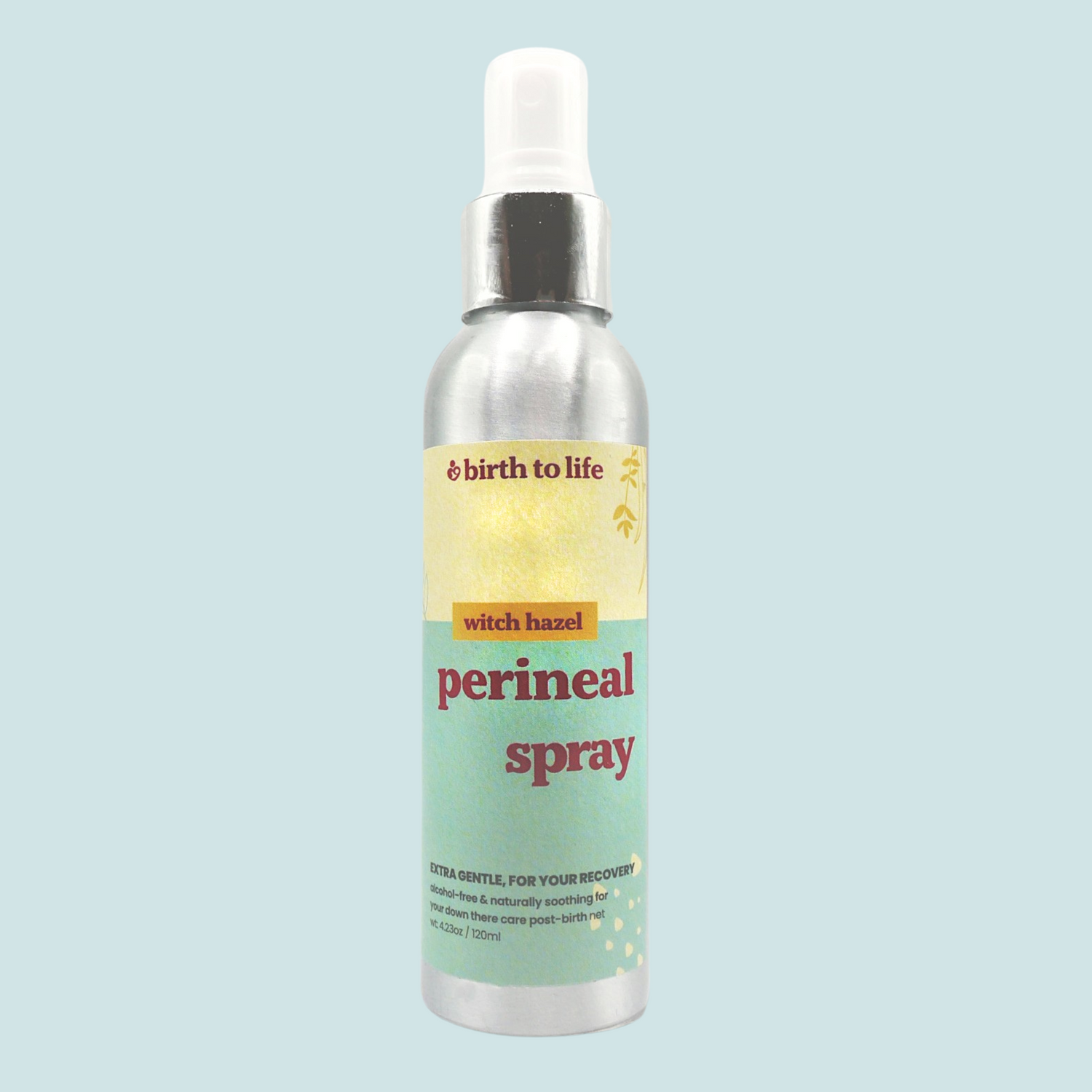

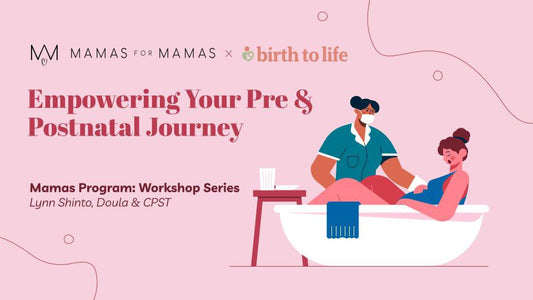
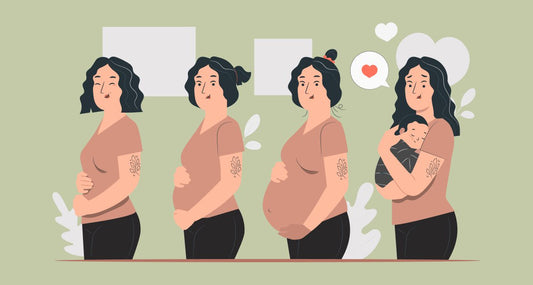
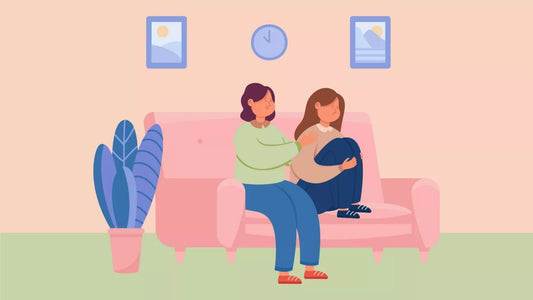
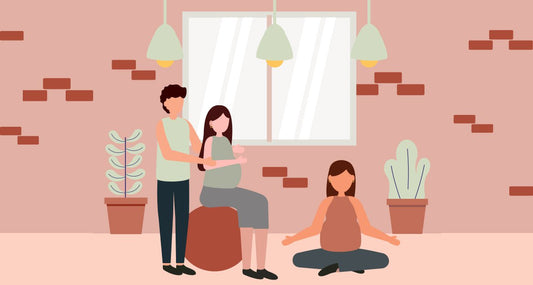

0 comments